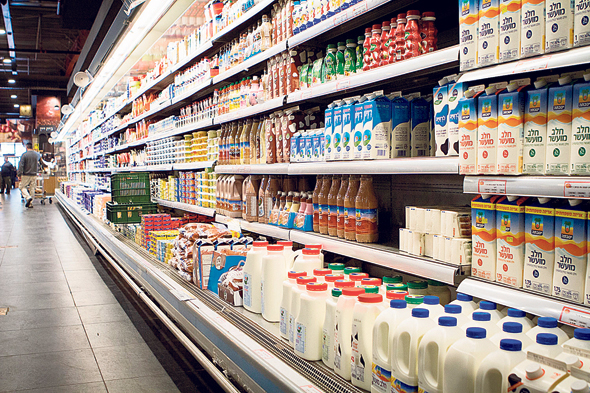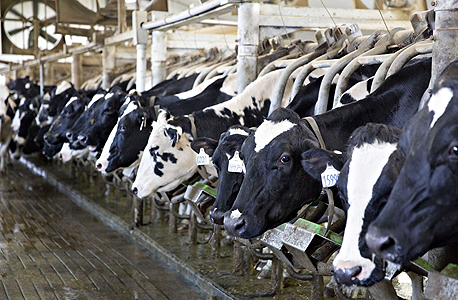
The disputes between the Ministry of Finance and the dairymen, regarding the nature of the industry’s activity in the coming years, are on the verge of a solution. As part of discussions held between the Ministry of Finance, the Ministry of Agriculture and representatives of the dairy industry, understandings were reached regarding milk production in the local market and import rules in the coming years, including extending the current target price (NIS 1.95 per liter) for another three years.
Read more in Calcalist:
At the same time, while the Ministry of Finance claimed that these were final understandings, according to the dairymen, not all issues were agreed upon and the parties are expected to discuss them next week. According to the director general of the Dairy Council, Itzik Schneider, “In a meeting we held last night (Wednesday) with the Minister of Finance, significant understandings were reached, but the agreement has not yet been signed. We expect to reach an understanding on all issues at the beginning of next week, and we will sign an agreement that will bring certainty to all those involved in the dairy economy. “
In the background is the Milk Law, which defines a mechanism for determining the target price of milk – that is, the price that dairies pay to dairy farmers for raw milk. The mechanism was set out in an interim order for eight years, which expired. Last June, discussions began between the Ministry of Agriculture and the Ministry of Finance on a new outline for the dairy farm, designed to regulate the continued activity of the industry through production quotas and price controls. The Ministry of Finance sought to promote the opening of the market to imports alongside lowering the price to the consumer, against direct support for dairymen, but the parties did not reach an understanding until the last few days.
 Photo: Bloomberg
Photo: Bloomberg
The understandings reached stipulate that the current target price mechanism will be extended by three years, with an option for extension for another two years by the Ministers of Finance and Agriculture through a government bill. It was further stipulated that at the same time, and in order to ensure the supply of the full demand for milk while maintaining domestic production, within three years 65% of the increase in milk consumption will be supplied through imports of duty-free quotas. The outline will be gradual to give preparation time, starting at 50% starting in 2021 and gradually increasing every year. The rest of the increase will be provided by increasing milk production in the local market. It was further determined that to the extent that the domestic market does not satisfy such demand, the scope of the duty-free quotas will increase accordingly.
The parties have decided to set up a dedicated team to promote immediate pilot in the group of dairy products beyond direct support. As part of the pilot, direct support will be given to local growers while increasing exposure to imports and reducing tariffs on those products, in order to lead to lower prices for consumers while maintaining the competitiveness of local production.
Meanwhile, Finance Minister Israel Katz signed an extension of the duty-free order on butter imports for another year, in order to meet the high demand in the local market.
Lior Simcha, CEO of the Dairy Producers Association of Israel, said that “the heated discussions with the Ministry of Finance led to the promotion of a long-term planning agreement in the dairy industry in Israel, but all the details have not yet been finalized and the agreement is not a fait accompli. I sincerely hope that in the coming days we will succeed in reaching final understandings, in a way that the Ministry of Finance will indeed encourage and actually support the increase in local milk production and thus bring a real message to Israeli milk producers and the general public. “